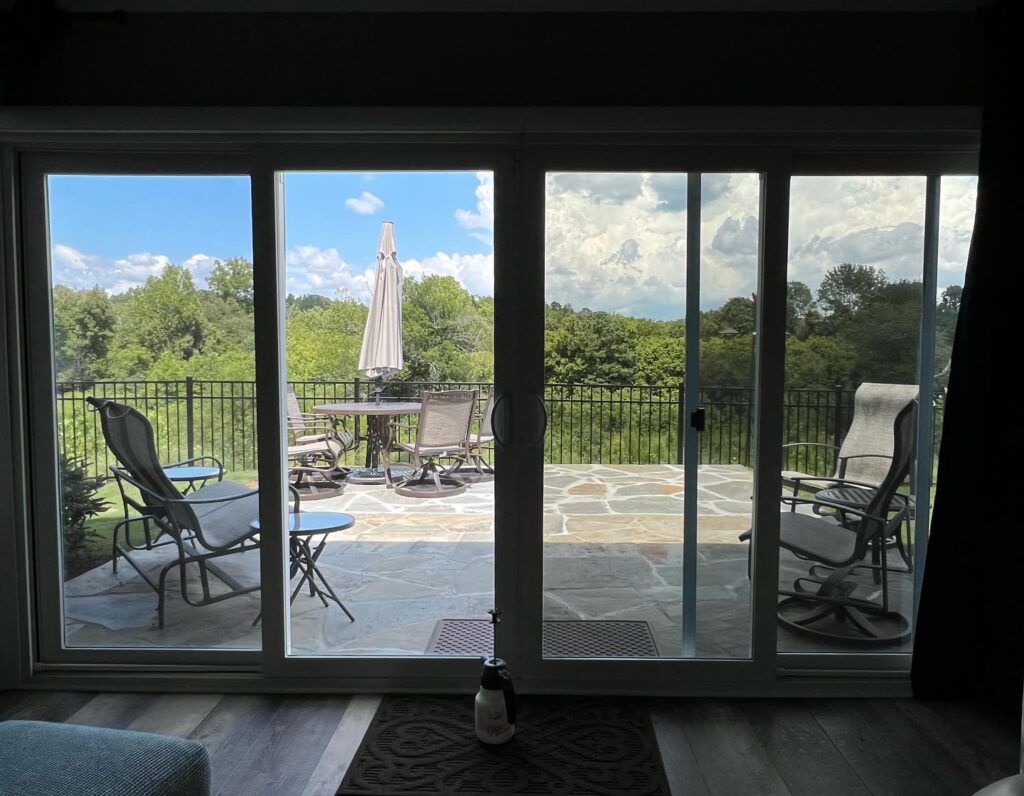In today’s world, sustainability is more than just a trend, it’s a necessity. As homeowners and businesses alike search for ways to reduce their environmental impact, one thing gaining popularity is window film. This innovative technology is both practical and eco-friendly, making it an ideal choice for those who want to live and work more sustainably.
At Tennessee Film Solutions, we believe in providing environmentally conscious solutions that don’t compromise comfort or style. Whether you’re considering home window tint or commercial window tinting, our expert team is here to help you make a smart, sustainable investment.

How Window Film Contributes To Sustainability
Energy Efficiency: Reducing Carbon Footprints
One of the most powerful ways window film contributes to sustainability is by improving energy efficiency. Homes and businesses often lose a large portion of their heating and cooling energy through untreated windows. This loss forces HVAC systems to work harder, leading to higher energy consumption and increased greenhouse gas emissions.
Installing home window tint or commercial window film can reduce this energy loss by up to 50-60%. Window film reflects heat in the summer and retains it in the winter, significantly lowering your energy usage and utility bills.
At Tennessee Film Solutions, we offer energy-efficient window films that are engineered to deliver year-round climate control. This saves you money and reduces your carbon footprint at the same time.
UV Protection: Preserving What Matters
Ultraviolet (UV) rays can damage more than just your skin. These rays also harm your furniture, flooring, artwork, and electronics. Traditional windows do little to block these UV rays, leading to premature fading and deterioration of interior items. This often results in more frequent replacements and higher environmental waste.
Our high-quality window film blocks up to 99% of UV rays, helping to extend the life of your home or office furnishings. By reducing the need for replacements, you’re making a choice that’s both economically and environmentally sound.
Lowering Cooling Costs
Many people searching for “window tinting near me” are dealing with one common problem: a home or office that feels like a sauna in the summer. Over-reliance on air conditioning not only drives up electricity costs but also contributes to environmental degradation through the emission of harmful gases.
By installing window film, you create a more stable indoor temperature. This reduces your need for air conditioning during the warmer months and helps stabilize indoor comfort levels naturally. The result? A cooler home and a healthier planet.
Sustainable Alternative To Window Replacement
Thinking about replacing your windows for better energy performance? Consider this: window film can deliver similar energy-saving benefits at a fraction of the cost and with far less environmental impact.
Manufacturing and transporting new windows requires significant energy and raw materials, not to mention the waste generated from removing and discarding old ones. Applying window film to your existing windows is a smart, sustainable alternative that minimizes waste while maximizing performance.
If you’re debating between window replacement and home window tint, contact Tennessee Film Solutions. Our experts can assess your current windows and help you determine the most efficient and eco-friendly path forward.

Commercial Window Tinting: Big Impact For Big Buildings
The environmental footprint of commercial buildings is huge. Commercial window tinting offers an effective way to reduce it. Offices, retail stores, and industrial facilities often feature large glass surfaces that allow for substantial energy loss. Installing commercial window film:
- Decreases HVAC energy consumption
- Enhances employee comfort and productivity
- Reduces glare on computer screens
- Demonstrates your company’s commitment to sustainability
At Tennessee Film Solutions, we’ve worked with businesses all over to create customized solutions that align with both their aesthetic and environmental goals.
Eco-Friendly Manufacturing & Installation
The commitment to sustainability doesn’t end with the product. Many window tinting companies, including Tennessee Film Solutions, prioritize the use of eco-friendly materials and installation techniques. We offer films that are made with sustainable practices and can be recycled at the end of their lifecycle.
Additionally, our professional installers minimize waste and ensure that every project is done efficiently, further reducing environmental impact.
A Long-Term Investment In The Planet
Window film isn’t just a short-term upgrade, it’s a long-term investment in your property. With a lifespan of 10–20 years or more, quality window film continues to deliver benefits long after installation. It’s a simple, cost-effective step you can take toward a greener, more sustainable future.
Why Choose Tennessee Film Solutions?
When you’re searching for a window tinting company you can trust, you need professionals who understand the intersection of performance, aesthetics, and sustainability. Here’s why homeowners and businesses choose Tennessee Film Solutions:
- Over 20+ years of quality industry experience
- Certified installation specialists
- Residential, commercial, and automotive services
- Commitment to eco-friendly products and practices
- Top-rated customer service and satisfaction

Call Us Today
If you’re Googling “window tinting near me” or considering ways to reduce your environmental impact, Tennessee Film Solutions is here to help. Whether you’re interested in home window tint or commercial window tinting, our team provides high-quality solutions that align with your sustainability goals.
Make the switch to energy-efficient, eco-conscious living today. Contact Tennessee Film Solutions for a free consultation and learn how window film can transform your space and reduce your carbon footprint.


